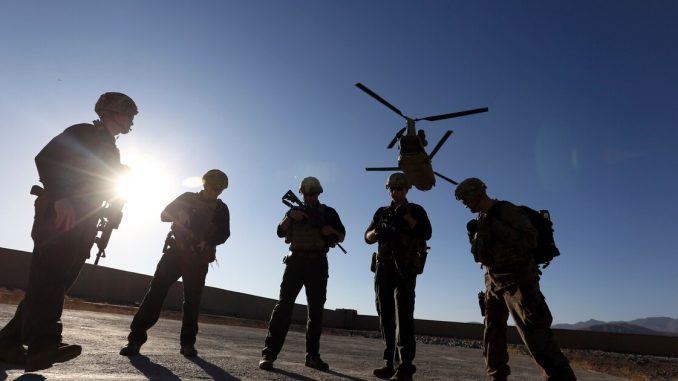
U.S. intelligence agencies aren’t particularly confident that Russia offered money to the Taliban for the killing of U.S. troops deployed to Afghanistan, a story that rocked the military and intelligence communities last summer.
The Trump administration consistently downplayed the issue, based on a June report from the New York Times. Then-Defense Secretary Mark Esper told lawmakers during a hearing in July that those reporters were not corroborated.
“The United States intelligence community assesses with low to moderate confidence that Russian intelligence officers sought to encourage Taliban attacks against U.S. coalition personnel in Afghanistan in 2019, including through financial incentives and compensation,” a senior administration official told reporters on Thursday.
Officials in President Donald Trump’s administration reportedly had heard of the possibility of the bounties since at least early 2019. In June, they told the Associated Press that the president hadn’t been briefed on the matter because it hadn’t been confirmed.
In addition to Esper, U.S. Central Command boss Marine Gen. Frank McKenzie also shared doubts at the time that the intelligence reporters were accurate.
/cloudfront-us-east-1.images.arcpublishing.com/mco/4FN7ACZY6ZEILNUIB6HLYFJBN4.jpg)
“I found it very worrisome. I didn’t find that there was a causative link there,” said McKenzie, adding that it has been confirmed that Russia has supported the Taliban in other ways, including with weapons and other resources.
The Biden administration on Thursday announced sanctions against Russia for other actions, including election interference and hacking.
“We should always remember, the Russians are not our friends,” McKenzie said in June. “They are not our friends in Afghanistan. And they do not wish us well, and we just need to remember that at all times when we evaluate that intelligence.”
The U.S. will be in a particularly vulnerable position in Afghanistan as it prepares to draw down its last 2,500 troops by Sept. 11. Administration officials have not yet detailed a plan for sustaining force protection as troop numbers dwindle.


Be the first to comment